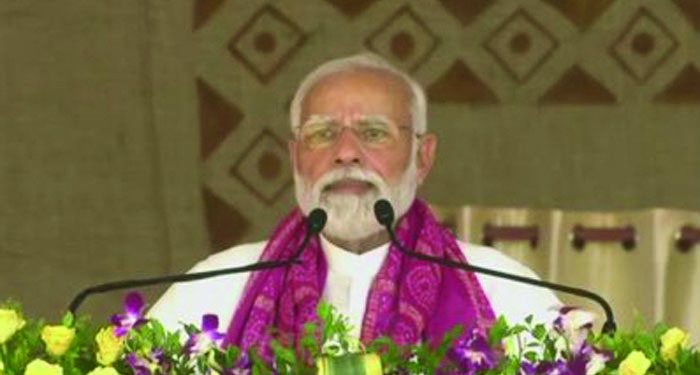- India’s G20 Presidency has also sowed the seeds of confidence in the countries of the so-called ‘Third World’
- The ‘Sabka Saath Sabka Vikas’ model that has shown the way in India can also be a guiding principle for the welfare of the world. Irrespective of the size of the GDP, every voice matters
- For a long time, India was perceived as a nation of over 1 billion hungry stomachs. But now, India is being seen as a nation of over 1 billion aspirational minds, more than 2 billion skilled hands, and hundreds of millions of young people
- We are perhaps the first among the G20 countries to have achieved our climate targets 9 years ahead of the scheduled date
- By 2047, I am sure that our country will be among the developed countries. Our economy will be even more inclusive and innovative. Our poor people will comprehensively win the battle against poverty. Corruption, casteism and communalism will have no place in our national life
NE BUSINESS BUREAU
NEW DELHI, SEPT 3
Debt crisis is a matter of great concern for the world, said Prime Minister Narendra Modi as the nation looks at building consensus at the upcoming G20 Summit to develop a valid framework to support low income, debt-ridden economies.
India’s G20 presidency has emphasized on addressing the global challenges posed by debt vulnerabilities, especially for the Global South nations, said PM Modi in an exclusive interview to PTI last week.
The prime minister said, “The debt crisis is indeed a matter of great concern for the world, especially developing countries. Citizens from different countries are keenly following the decisions being taken by governments in this regard. There are some appreciable results too.”
“First, countries that are going through debt crisis or have gone through it, have begun to give greater importance to financial discipline,” he said, adding that, “Second, others who have seen some countries facing tough times due to the debt crisis are conscious of avoiding the same missteps.”
Under its G20 presidency, India has been consistently highlighting the need for a framework on debt restructuring to help countries who are increasingly facing debt problems.
China, considered to be the world’s largest sovereign creditor, has been showing reluctance to certain proposals on debt restructuring although an increasing number of G20 member countries are pitching for helping the low-income nations deal with the crisis.
Estimates suggest that over 70 low-income countries are reeling under a collective debt burden of USD 326 billion.
“The G20 finance ministers and Central Bank Governors have acknowledged the good progress in debt treatment of common framework countries and beyond the common framework too,” the prime minister said.
“We have also been greatly sensitive to the needs of our valued neighbour, Sri Lanka, during their tough times,” Modi said.
“To accelerate global debt restructuring efforts, the Global Sovereign Debt Roundtable, a joint initiative of the IMF, World Bank and the G20 Presidency was launched earlier this year. This will strengthen communication among key stakeholders and facilitate effective debt treatment,” he added.
PM Modi hoped that rising awareness among the people of different countries on the problem will ensure that such situations don’t recur often.
In July, IMF Chief Kristalina Georgieva pitched for a speedier debt restructuring process for vulnerable countries.
India is hosting the G20 summit on September 9 and 10 in its capacity as the current chair of the grouping.
The G20 member countries represent around 85 percent of the global GDP, over 75 per cent of the global trade, and about two-thirds of the world population.
The grouping comprises Argentina, Australia, Brazil, Canada, China, France, Germany, India, Indonesia, Italy, Japan, the Republic of Korea, Mexico, Russia, Saudi Arabia, South Africa, Turkey, the UK, the US and the European Union (EU).












